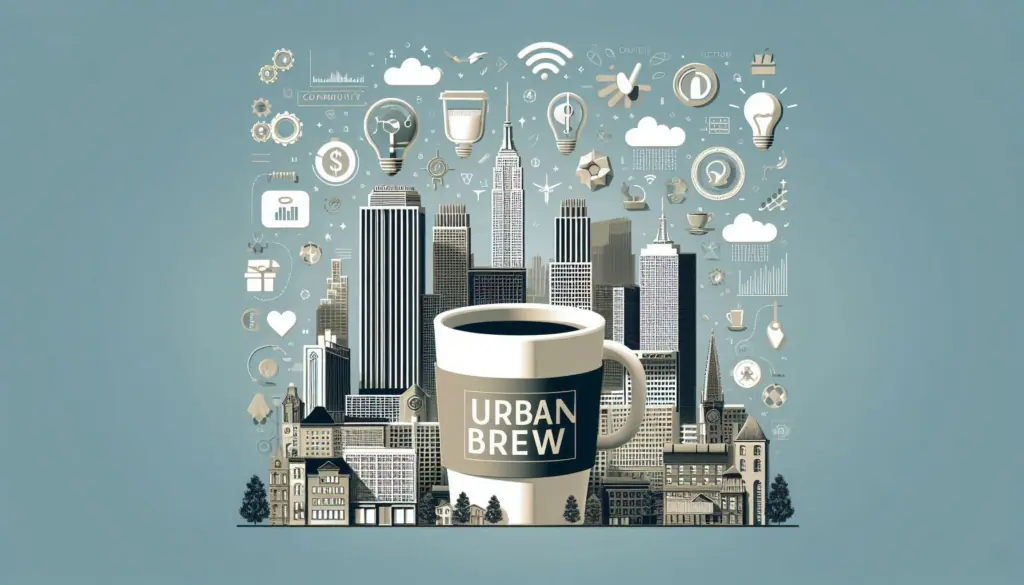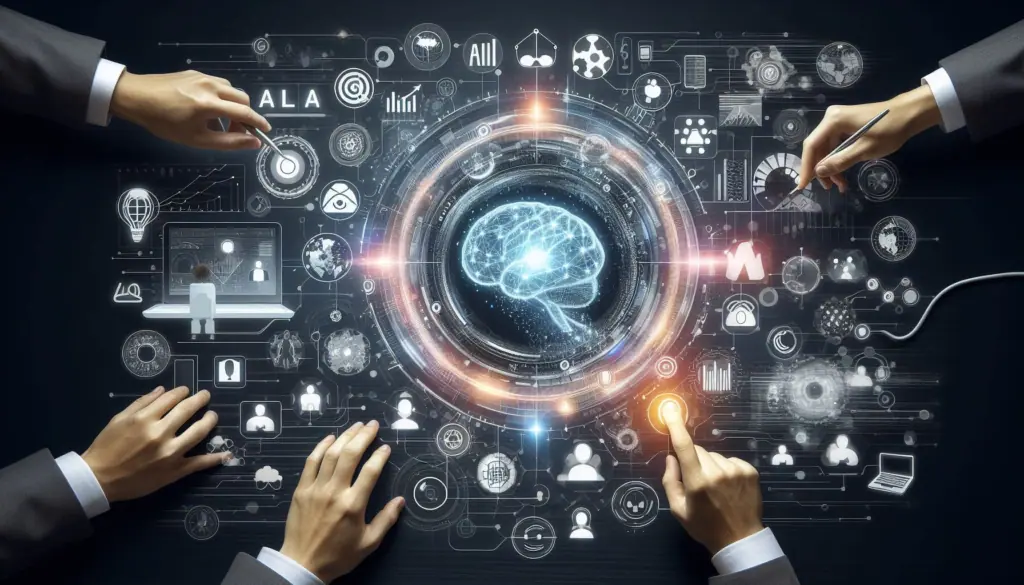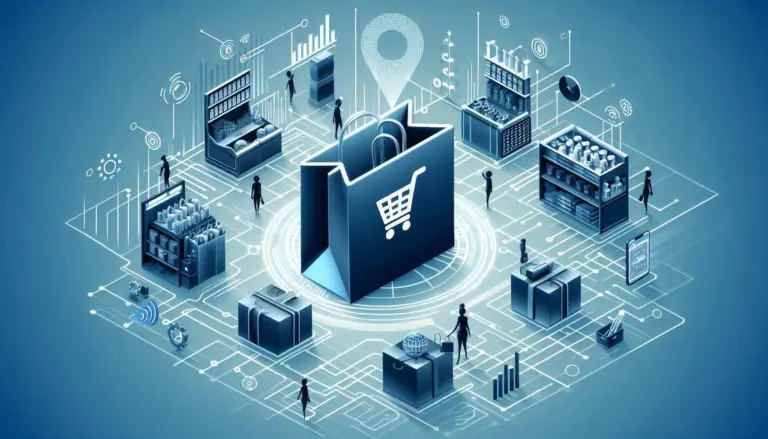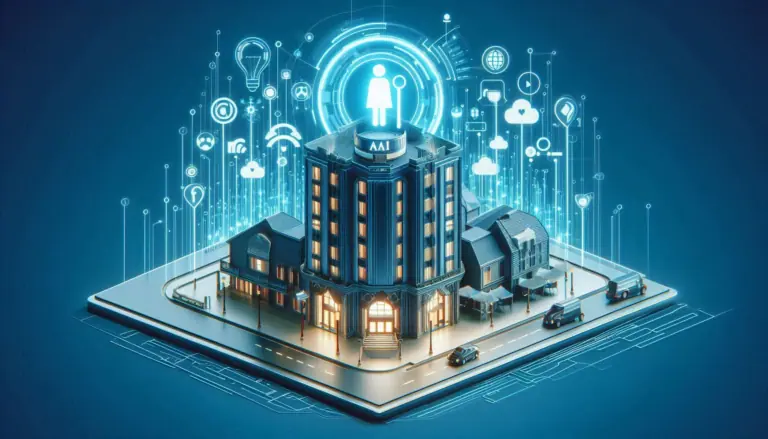AI Workflow Automation: The Future of Business Efficiency

Written By:
Last Updated Date:
TL;DR
In the bustling streets of New York City, Julian’s UrbanBrew, a beloved coffee chain, is grappling with growth challenges. Maintaining the warm, personalized service that made it unique as the business expands has become difficult.
This article discusses how Julian embraces AI workflow automation to revive that personal touch. It delves into how technologies like Robotic Process Automation and Machine Learning can transform customer service and operational efficiency across industries. The piece illustrates a future where AI doesn’t just automate tasks but enriches interactions, ensuring every customer feels uniquely valued as businesses adapt to a digital-first world.
Key Takeaways
- AI as a Customer Service Enhancer: AI workflow automation can significantly improve customer interactions by ensuring consistent, personalized service across a business’s locations, as demonstrated by Julian’s UrbanBrew.
- Operational Efficiency: By automating routine tasks, AI technologies like Robotic Process Automation and Machine Learning allow employees to focus on more strategic and creative aspects of their work, boosting overall productivity and efficiency.
- Cross-Industry Impact: The application of AI workflow automation extends beyond the coffee industry, offering transformative benefits in sectors such as healthcare, finance, and retail, driving innovation and competitive advantage in a digital-first era.
Julian’s Crossroads
In the heart of New York City, amidst the constant buzz and towering skyscrapers, Julian’s UrbanBrew was more than just a coffee chain; it was a neighborhood gem cherished for its artisan coffees and the warmth of community it fostered. Over the past decade, a modest corner café had blossomed into a vibrant chain of thirty bustling locations. Each spot uniquely mirrored its neighborhood, weaving UrbanBrew into the fabric of everyday life.

However, as the business expanded, Julian, the passionate founder and CEO, faced a critical challenge threatening the essence of UrbanBrew. The personal touch that had once defined their customer service was now inconsistent across the newer branches. While the original store continued to thrive with personal greetings and remembered favorite orders, others struggled under growth strain. Newer locations suffered from long lines, frequent order errors, and a missing personal connection that had always set UrbanBrew apart.
One brisk fall morning, Julian visited one of these struggling branches during the morning rush. The scene he walked into was a far cry from the well-oiled machine he had cultivated at the flagship store. The air was thick with the scent of coffee and a palpable tension as baristas hustled frantically to keep up with the never-ending orders. The inventory was low, and the staff, though earnest, were overwhelmed. Witnessing the stress of both customers and employees firsthand, Julian felt a deep, pressing need to act. This wasn’t the vision he had for UrbanBrew.
Later that evening, back in his office surrounded by the quiet hum of the city, Julian poured over customer feedback. The calls for quicker service and a more personal touch were louder than ever. Then, amidst the sea of comments, Julian’s eyes landed on an intriguing solution for AI workflow automation. The concept was simple yet powerful: use intelligent technology to streamline operations and enhance customer interactions without sacrificing the human element.
Intrigued by the possibilities, Julian imagined a future where technology did more than automate. It revitalized. With AI workflow automation, UrbanBrew could maintain its cherished personal touch and elevate it, ensuring every customer felt known, no matter which location they visited. This wasn’t about replacing the human element but enhancing it, allowing baristas to focus on what they did best, creating exceptional coffee experiences enriched with personal connection.
The Essence of AI Workflow Automation

AI workflow automation is more than just automating tasks; it’s about infusing workflows with intelligence. By seamlessly integrating AI into existing processes, organizations can automate repetitive tasks, analyze vast datasets, and make informed decisions quickly and accurately. This synergy of human ingenuity and machine intelligence fosters a mixed-autonomy environment where humans and AI collaborate to achieve optimal outcomes.
Key Technologies Powering AI Workflow Automation

1. Robotic Process Automation (RPA)
RPA bots emulate human actions to execute rule-based tasks, such as data entry, invoice processing, and report generation.
2. Machine Learning (ML)
ML algorithms enable systems to learn from data, identify patterns, and make predictions or decisions without explicit programming.
3. Natural Language Processing (NLP)
NLP enables machines to understand, interpret, and generate human language, facilitating customer service interactions and document analysis tasks.
4. Optical Character Recognition (OCR)
OCR converts scanned documents or images into editable text, streamlining data extraction and processing.
The Transformative Impact Across Industries

The transformative impact of AI workflow automation is profound and far-reaching. It touches virtually every industry and significantly enhances efficiency and strategic insights.
Here’s how AI is reshaping some key sectors:
1. Healthcare

In healthcare, AI workflow automation brings substantial improvements. Automating patient onboarding simplifies the entry process, making it faster and more accurate, reducing wait times, and increasing patient satisfaction.
Automated claims processing revolutionizes how quickly and efficiently claims are handled, reducing errors and speeding up reimbursements. This not only eases the administrative burden but also enhances patient care by allowing healthcare providers to focus more on patient interaction rather than paperwork.
2. Finance

In the financial sector, AI is a game-changer. It streamlines the loan approval process, making it quicker and more accessible to evaluate applicants’ creditworthiness using sophisticated algorithms. This speeds up decision-making and improves customer service.
Additionally, AI’s ability to detect fraudulent transactions helps protect the institution and its customers from sophisticated cyber threats, ensuring trust and security in financial operations.
3. Manufacturing

Manufacturing sees a significant boost from AI in maintaining high-quality control standards. AI systems can predict when machines will likely need maintenance before breakdowns occur, minimizing downtime and extending the lifespan of expensive equipment.
This predictive capability ensures continuous production flow and better-quality products, positioning businesses to better meet consumer demands and maintain competitive edges.
4. Retail

In retail, AI personalizes the shopping experience, suggesting products to consumers based on their browsing and purchase history, enhancing customer satisfaction, and boosting sales. AI also optimizes inventory management, predicts trends, and ensures popular products are well-stocked, reducing overstock and understock situations and significantly affecting profitability.
5. Human Resources

Finally, in human resources, AI transforms how companies recruit and manage their workforce. By automating the recruitment process, AI helps HR departments filter through applications more efficiently, identifying the most promising candidates quickly.
Moreover, AI-driven analytics on employee performance data can lead to more informed decisions on training, promotions, and retention strategies, improving workplace morale and productivity.
AI workflow automation, therefore, isn’t just a technological upgrade but a catalyst for smarter, more compassionate, and customer-focused business practices across all industries.
Case Study: Transforming Customer Support with AI

The customer service landscape is undergoing a remarkable transformation thanks to the power of artificial intelligence (AI).
Let’s take a look at how two industry giants are harnessing AI to elevate their customer experiences:
A Familiar Name in E-commerce
You’ve probably shopped with them before. This global e-commerce leader decided to introduce AI chatbots to their customer service team. By employing natural language processing, these chatbots can understand and respond to customer inquiries quickly and accurately.
The results? Shorter wait times, happier customers, and human agents can now dedicate their expertise to resolving more complex issues.
Best Buy, Your Friendly Neighborhood Electronics Store
Best Buy isn’t just about TVs and laptops anymore. They’re also at the forefront of AI innovation.
Here’s how they’re using AI to improve their interactions with both customers and employees:
1. Smooth Sailing Across Channels:
Ever started a conversation online and then continued it in-store?
Best Buy’s AI ensures a seamless experience no matter how you connect with them.
2. Call Centers That Work Smarter:
Ever wished customer service agents had more time to listen to your concerns?
Best Buy uses AI to summarize critical points from calls, allowing agents to focus entirely on you.
3. Training That Feels Like a Game:
Imagine learning your job in a virtual reality environment!
Best Buy is experimenting with this innovative approach to employee training for their in-home consultants and designers.
4. Sales That Speak Volumes:
Best Buy’s investment in AI isn’t just about fancy tech but tangible results. Their digital sales have seen a significant boost thanks to their AI initiatives.
These examples showcase the incredible potential of AI to reshape customer service. From friendly chatbots offering instant help to behind-the-scenes AI working to make your shopping experience smoother, it’s clear that AI is here to stay.
So, the next time you encounter a helpful chatbot or receive a personalized recommendation, remember that AI is making your life much easier.
Benefits of AI Workflow Automation

1. Enhanced Efficiency and Productivity
AI takes over repetitive, time-consuming tasks like data entry, report generation, or invoice processing. This frees employees to focus on tasks that require critical thinking, creativity, and complex problem-solving, driving productivity and innovation within the organization.
2. Cost Reduction
By automating manual processes, businesses can significantly reduce operational costs. There’s less need for manual labor, errors are minimized (which avoids costly rework), and resources can be allocated more strategically.
3. Improved Accuracy
AI-powered systems excel at handling large volumes of data with precision. They minimize the risk of human error, ensuring that data is processed, analyzed, and reported accurately. This is crucial for maintaining data integrity and making informed business decisions.
4. Scalability
As a business grows, its workload increases. AI-driven workflows can quickly scale up or down to meet these changing demands. Whether processing a few hundred or thousands of transactions, AI ensures consistent performance without requiring significant additional resources.
5. Data-Driven Insights
AI algorithms can sift through massive datasets, identifying patterns, trends, and correlations that might be invisible to the human eye. These insights provide a deeper understanding of customer behavior, market trends, and operational inefficiencies, enabling data-driven decision-making.
6. Enhanced Customer Experience
AI-powered automation tools like chatbots and virtual assistants can provide instant, personalized customer support 24/7. They can answer queries, resolve issues, and make product recommendations, enhancing customer satisfaction and loyalty.
7. Risk Mitigation
AI can monitor systems and processes in real-time, identifying potential risks and anomalies before they escalate. This enables proactive risk mitigation, reducing the likelihood of costly disruptions or security breaches.
8. Innovation Catalyst
By automating routine tasks, AI essentially clears the path for innovation. Employees have the mental space and time to brainstorm new ideas, experiment with solutions, and drive the company forward. It transforms the workplace into a hub of creativity and forward-thinking.
Overcoming Challenges and Embracing the Future

While AI workflow automation offers immense potential, organizations must address AI and automation challenges such as data quality, integration with legacy systems, and the need for skilled talent. Careful planning, robust change management strategies, and continuous monitoring are essential for successful implementation.
As AI technology continues to evolve, the future of AI workflow automation is incredibly promising. We can anticipate more intelligent, adaptive, and autonomous systems to revolutionize our work further. By embracing AI workflow automation, organizations can unlock new efficiency, productivity, and innovation levels, positioning themselves for success in the digital age.
Conclusion
AI workflow automation is a game-changer for businesses of all sizes and industries. AI is transforming how we work by automating repetitive tasks, improving efficiency, and reducing costs. As AI technology continues to evolve, the possibilities for AI workflow automation are endless.
The question is not whether AI workflow automation will change the business landscape but how quickly it will do so. Businesses that embrace this technology early on will be well-positioned for success in the future.
Frequently Asked Questions (FAQ)
I’m a technology specialist and entrepreneur with over 20 years of experience in the IT industry. I’m passionate about innovation, ideation, and commercialisation, and enjoys working with businesses helping to improve their processes and technological architecture. I have a Masters in Commercialisation and Innovation that brings a unique perspective to my expertise, having experience in various industries and countries.







2 Comments